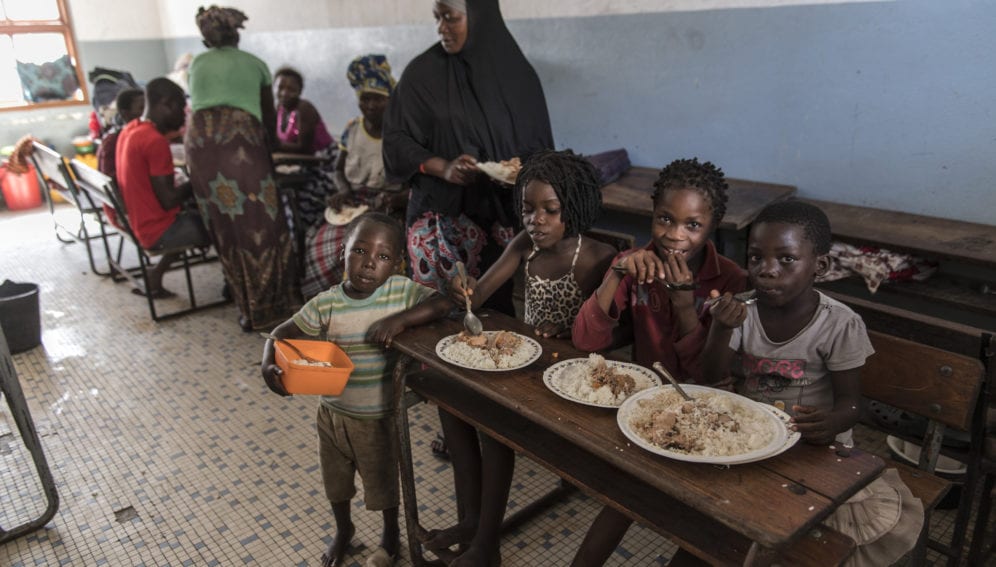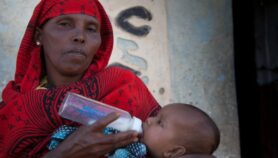18/11/20
Free school meals ‘could help child brain development’

Send to a friend
The details you provide on this page will not be used to send unsolicited email, and will not be sold to a 3rd party. See privacy policy.
[NAIROBI] Countries worldwide need to increase emphasis on the need for healthy nutrition from childhood, including school years to adulthood, to help in brain development, a scientist says.
According to Majid Ezzati, co-author of a study that has found Sub-Saharan Africa with six of the world’s top ten countries with low adolescents’ birth weights, says that such interventions will help children grow taller without gaining excessive weight for their height.
“The interventions will be context-specific but they should broadly be policies that increase the availability and reduce the cost of nutritious foods, as this will help children grow taller without gaining excessive weight for their height,” he explains.
“Height of children, especially boys, in many Sub-Saharan African nations has stagnated or reduced over these decades”
Majid Ezzati, Imperial College London
“These initiatives include food vouchers towards nutritious foods for low-income families and free healthy school meal programmes, which are particularly under threat during the [COVID-19] pandemic,” Ezzati, a professor at the School of Public Health, Imperial College London, tells SciDev.Net.
According to the study, Sub-Saharan Africa has six of the world’s top ten countries with low adolescents birth weights, an indicator reflecting increased risk of low mental development.
Researchers assessed variations in school-aged children’s height and weight to calculate an indicator called body mass index (BMI), which is used to work out if your weight is healthy.
According to researchers, a low BMI impairs cognitive development and reduces educational performance as well as work productivity in later life. Conversely, a high BMI increases the risk of disability and premature death in adulthood, with poor mental health and educational outcomes.
Researchers analysed data from 2,181 population-based studies, with measurements of height and weight in 65 million school-aged children of ages five to 19 years old in 200 countries and territories. Researchers also used a statistical approach to estimate trends in BMI from 1985 to 2019.
“Height of children, especially boys, in many Sub-Saharan African nations has stagnated or reduced over these decades [1985 to 2019] which is a notable exception to other regions,” says Ezzati.
Central African Republic, Chad, the Democratic Republic of Congo, Ethiopia, Niger and Senegal are among the top ten countries with 19-year-old boys having low BMI in 2019 globally, says the study published in The Lancet this month (7 November). The other countries are Bangladesh, India, Nepal and Timor-Leste.
“To our knowledge, this study presents the first comparable estimates of height in school-aged children and adolescents for all countries in the world and does so alongside estimates of BMI, which together are pathways from nutrition and environment during childhood and adolescence to lifelong health,” says the study.
Dorothy Mituki Mungiria, a researcher and lecturer in the Department of Human Nutrition, Egerton University, Kenya, says that the study’s show that policies and programmes should adopt the life course approach to nutrition, developed in the 1960s.
“The emphasis should be on the biological needs in terms of different specific amounts, types and varieties of nutrients for population groups who are at specific stages of life: during pregnancy and for the new-born child; during early and late childhood; during adolescence; during adulthood; and for older persons,” she tells SciDev.Net.
Mungiria says that policies and programmes are mainly targeted at the pregnant mother and the child and no follow up is made after the mother has delivered the baby.
“Interventions after this period are rare,” she explains, adding that educational institutions should provide nutritious foods while avoiding inexpensive and nutrient-poor food choices.This piece was produced by SciDev.Net’s Sub-Saharan Africa English desk.














